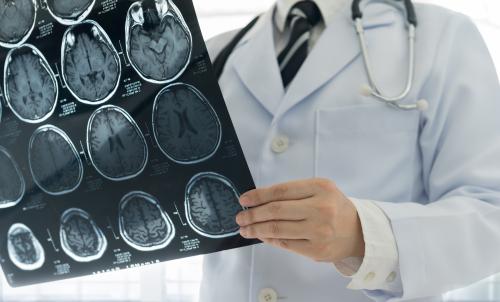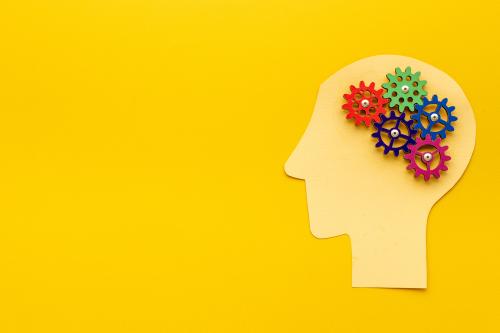This blog accompanies the report on “Brain health-directed policymaking: A new concept to strengthen democracy”
We recently proposed a model that provides a novel, interdisciplinary approach to brain health-directed policymaking and economic strategy, with the aim to foster performance, cohesion, and sustainability of democratic societies internationally. Brain health-directed policymaking and economic strategy have the potential to provide sustainable solutions to the challenges of the 21st century and to bolster democracy.
The current state of democracy is akin to a house of cards—multiple factors are converging to threaten global democracy in our modern world. Democracy is a form of self-governance usually exercised through a system of elected political representatives that carry out the business of governing on behalf of citizens. Fundamental to thriving democracies are an educated and engaged citizenry, evidence-based policy, equal opportunity, social mobility, freedom from corruption, freedom of thought, freedom from discrimination, and self-actualization. In other words, a healthy democracy should enable the conditions for communities to thrive and individuals to reach their full potential. However, democracy is being increasingly undermined. Globally, there has been a decline in democracies—less than half of the world’s population now live in a democracy—and measures of global freedom are now in their 15th year of decline. Unprecedented challenges—spanning the COVID-19 pandemic, climate change, economic and physical insecurity, polarization, lack of social cohesion, declining youth mental health, misinformation, and undesired effects of social media—are additionally colliding to cause enormous sociopolitical and economic consequences and weaken democracy.
We urgently need new approaches to strengthen democracy. One promising approach with untapped potential is policymaking directed at enhancing brain health. According to the World Health Organization, good brain health is defined as “a state in which every individual can learn, realize their potential, and optimize their cognitive, psychological, neurophysiological, and behavioral responses, while adapting to changing environments”. Thus, brain health goes beyond the mere absence of disease and provides a comprehensive, human-centered concept relevant across the lifespan. Integrating brain health into the policy arena could mitigate global challenges and strengthen democracy across all levels of society.
Brain health provides a promising target for policy in efforts to mitigate global challenges and strengthen democracy across all levels of society. However, first it is vital to understand how brain health challenges undermine democracy. In his perspective in The Lancet, Marmot (2020) links despair to flawed democracy through the distortions and subversions generated by growing social and economic inequalities. Indeed, despair and inequality is a growing crisis and a matter of national security. In the United States, deaths of despair (suicide and poisoning by alcohol and drugs) are now so prevalent that they are lowering the average United States life expectancy. Downstream effects of despair are postulated to include heightened susceptibility to misinformation, far-right radicalization, and extremist activities. Despite the threat to national security and democracy, there is a lack of federally coordinated policy measures to address the roots of despair and inequality, specifically from a neuroscience and bio-psycho-social perspective. We must mitigate inequalities in all forms—including inequalities leading to deaths of despair—to improve brain health.
As another example, conflicts and warfare threaten democracy and have a myriad of detrimental effects on brain health. Physical disability, psychological distress, post-traumatic stress disorder, alcohol and drug abuse, suicidality, psychosomatic illnesses, and loss of social engagement are just a few of many brain health challenges that are prevalent in people who have lived in or been exposed to war-torn areas. Soldiers, women, children, the elderly, and the disabled are disproportionately affected. By taking brain health into account, policies can be developed that prevent and mitigate the effects of violence and warfare. We must target brain health both to strengthen democracy and to ameliorate the effects of flawed democracies. Additionally, better understanding of the structural factors (e.g., social, economic, political) that mediate the relationship between brain health and democracies is needed.
A focus on brain capital provides a new approach to inform policy development to safeguard and advance democracy. Brain capital is a new economic asset which prioritizes, integrates, and optimizes for brain health and brain skills (e.g., resilience, creativity, wisdom). Making brain capital a policy priority may generate greater economic empowerment, build societal resilience, and strengthen democracy. Recognizing that brains are indispensable drivers of human progress, brain capital provides an opportunity to invest in these valuable assets and nurture healthier, more resilient, and flexible brains and societies. Brain capital is not currently captured by any existing economic measures. A crucial next step is to develop novel metrics and tools to objectively measure and quantify brain capital, i.e., a as well as to better understand the relationship between brain capital and democracy. The Brain Capital dashboard, which is in progress, will allow users—ranging from policymakers to medical and other practitioners to personnel in international organizations—to track progress within and across countries in the achievement of the goals set by the Brain Capital initiative and also provide guidelines for doing so.
Brain health-directed policymaking and economic strategy provide a new, human-centered approach to strengthen democracy. To address the greatest global challenges, including deaths of despair, we need policy measures that account for brain health and view democracy from a neuroscience lens.








Commentary
Brain capital: A new vector for democracy strengthening
November 8, 2022